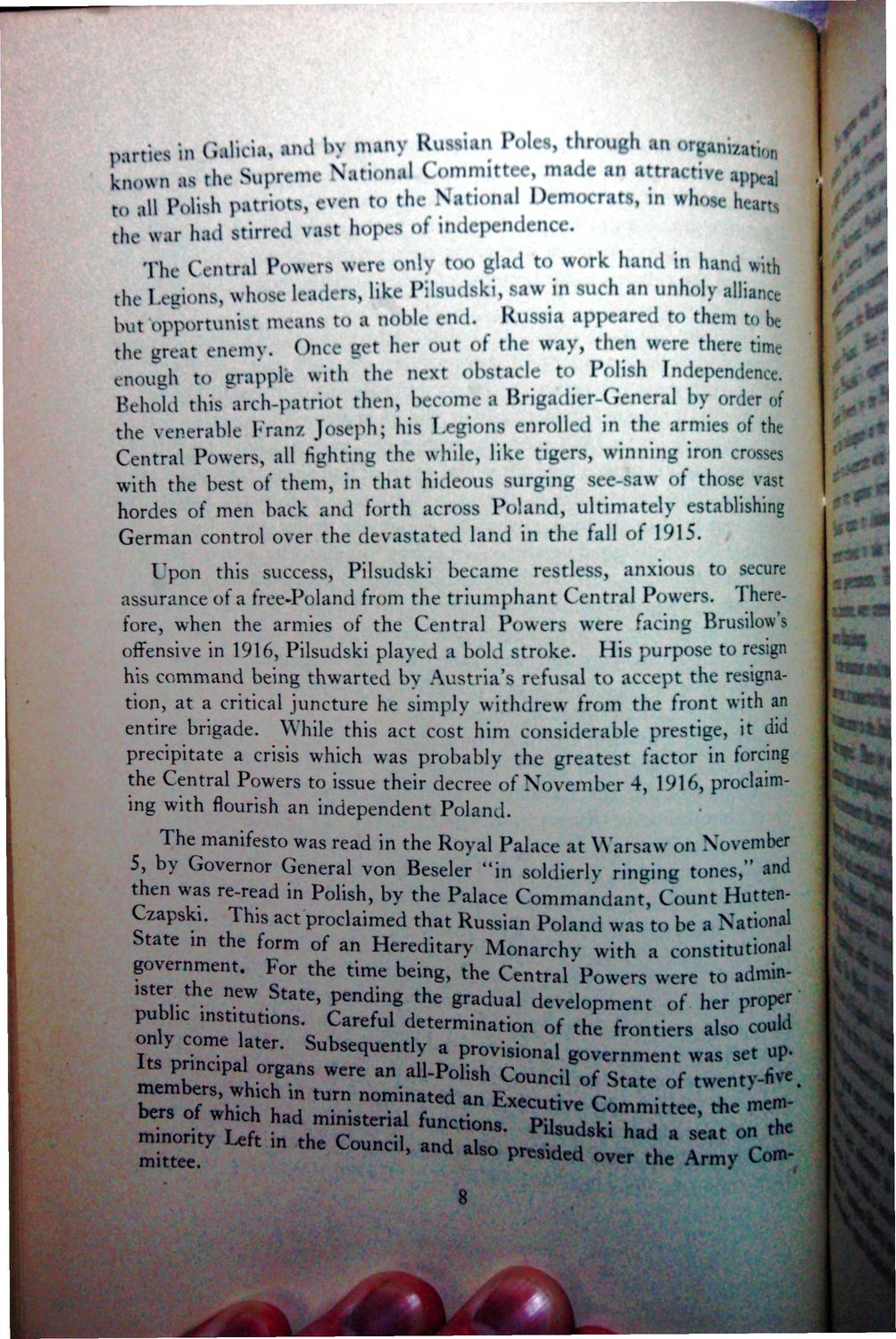| |
| |
Caption: War Publications - WWI Compilation 1923 - Article 24
This is a reduced-resolution page image for fast online browsing.

EXTRACTED TEXT FROM PAGE:
partus in Calicia, uul liy many Russian Poles, through an organization i-n.»vvn n* the Supreme National Committee, made an attractive aj)pca: I )cmocrats, in whose ti pes of independence The Central Powers were only too glad to work hand in hand with the Legions, whose leaders, like Pilsudsld, saw in such an unholy alliance but opportunist means to a noble end, Kussia appeared to them to I* the great enemy. Once get her out of the way, then were there time enough to grapple with the next obstacle to Polish Independence. Behold this arch-patriot then, become a Brigadier-General by order of the venerable Fran/ Joseph; his ! egions enrolled in the armies of the Central Powers, all fighting the while, like tigers, winning iron crosses with the best of them, in that hideous surging see-saw of those vast hordes of men back and forth across Poland, ultimately establishing German control over the devastated land in the fall of 1915. / I pon this success, Pilsudski became restless, anxious to secure assurance ot a free-Poland from the triumphant Central Powers. Therefore, when the armies of the Central Powers were facing Rrusilow's offensive in 1916, Pilsudski played a bold stroke. His purpose to resign his command being thwarted by Austria's refusal to accept the resignation, at a critical juncture he simply withdrew from the front with an entire brigade. While this act cost him considerable prestige, it did precipitate a crisis which was probably the greatest factor in forcing the Central Powers to issue their decree of November 4, 1916, proclaiming with flourish an independent Poland. The manifesto was read in the Royal Palace at Warsaw on November 5, by Governor General von Beseler "in soldierly ringing tones," and then was re-read in Polish, by the Palace Commandant, Count Hutten^zapski. l his act proclaimed that Russian Poland was to be a National Mate ,n the form of an Hereditary Monarchy with a constitutional r ient or t h e t , m e b e m Ut *! " ] " ' *l 8» the Central Powers were to admin6 end in g he g f a d u a l public i n s t f t u H ' P f , ; development of her proper only come at r s K ^ ' f*™™™ of the frontiers also could members, which in t u r T n ^ ^ f e ^ . ° " £ * £ bers of which had ministerial functions P, lsu H ^ T ^ ' * * Pi X S minoritv Left in *k. r „:i _ " ? * . <*ski had a seat on the mittee. 8 8 S t a t e f
| |